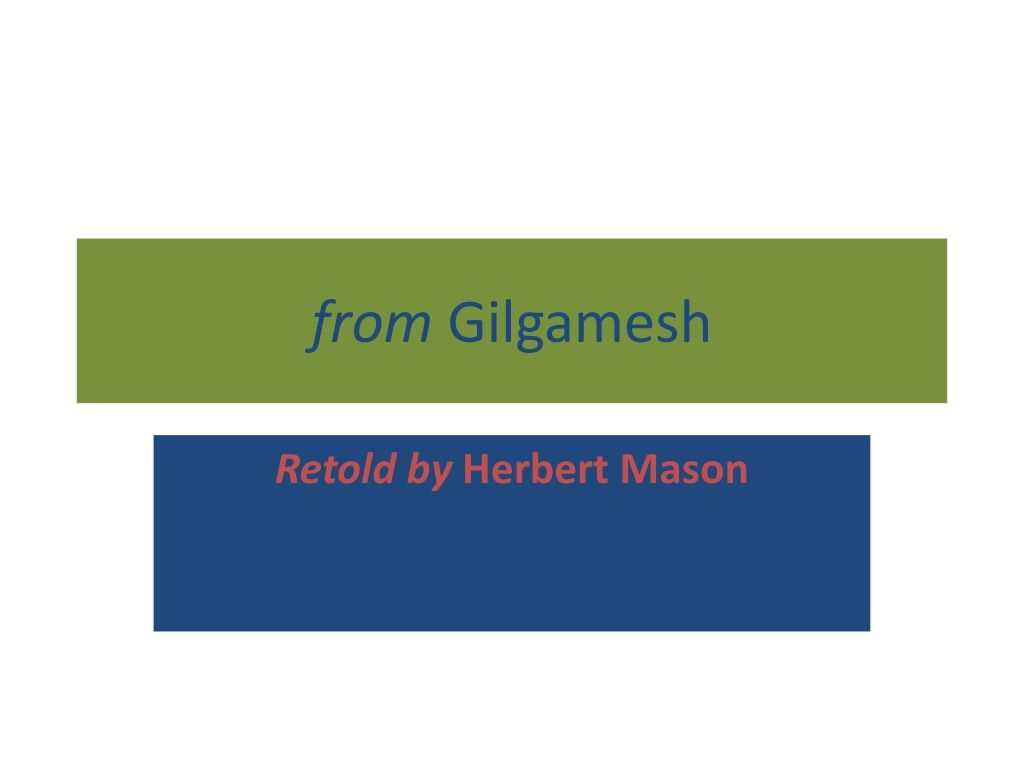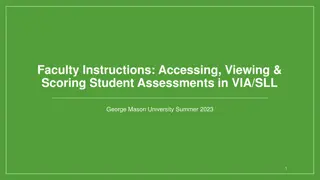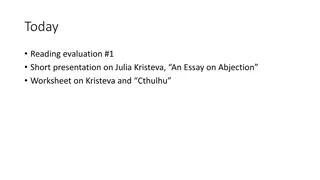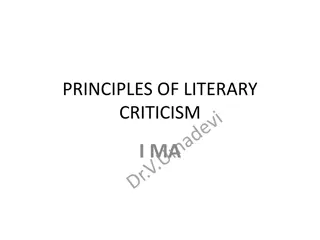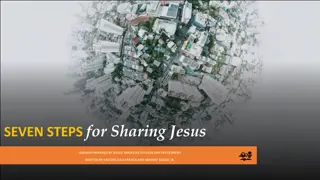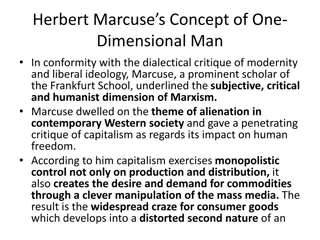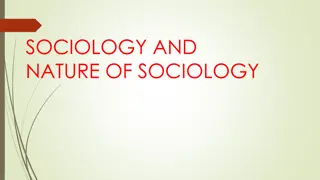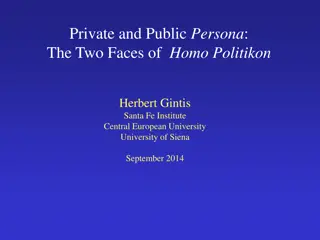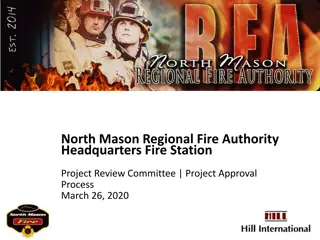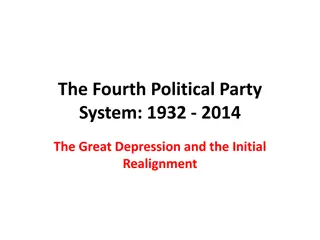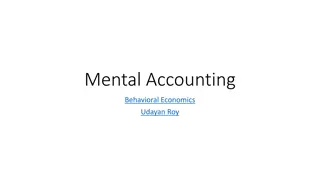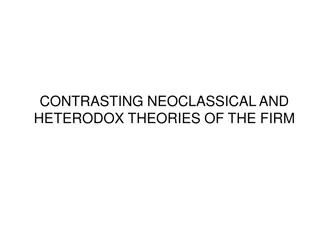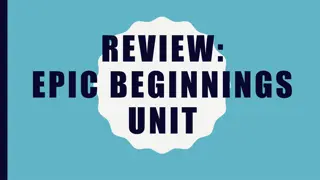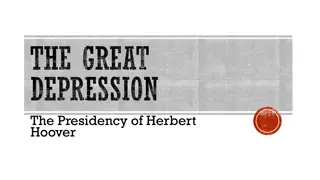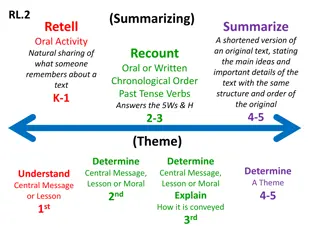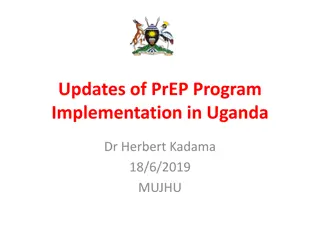Insights from Gilgamesh: A Retelling by Herbert Mason
Delve into the epic tale of Gilgamesh retold by Herbert Mason, exploring themes of mortality and the pursuit of greatness. Follow Gilgamesh as he grapples with death, plans to confront Humbaba, and faces the mysteries of the forest. Witness the ambiguous relationship between epic heroes and gods, offering a unique perspective on human and divine interactions.
Download Presentation

Please find below an Image/Link to download the presentation.
The content on the website is provided AS IS for your information and personal use only. It may not be sold, licensed, or shared on other websites without obtaining consent from the author. Download presentation by click this link. If you encounter any issues during the download, it is possible that the publisher has removed the file from their server.
E N D
Presentation Transcript
from Gilgamesh Retold by Herbert Mason
Word of the Day exacerbate ex ac er bate (g-zsr-bt) tr.v. ex ac er bat ed, ex ac er bat ing, ex ac er bates To increase the severity, violence, or bitterness of; aggravate: a speech that exacerbated racial tensions; a heavy rainfall that exacerbated the flood problems. [Latin exacerbre, exacerbt- : ex-, intensive pref.; see ex- + acerbre, to make harsh (from acerbus, harsh; see ak- in Indo-European roots).]
Essential Questions Gilgamesh To Enkidu and the elders of Uruk (p. 48, l 1-5, l 25 - 32): Why are you worried about death? Only the gods are immortal anyway, sighed Gilgamesh. What men do is nothing, to fear is never justified. . . . The one you speak of . . . I now must meet. I want to prove him not the awesome thing we think he is and that the boundaries set up by gods are not unbreakable. I will defeat him in his cedar forest. The youth of Uruk have grown soft and restless. What reasons for fighting Humbaba does Gilgamesh give in his speech?
How do the elders react to Gilgamesh s plan? Gilgamesh to : (p. 48, l The old men leaned a little forward remembering old wars. A flush burned on their cheeks. It seemed dangerous and yet they saw their king was seized with passion for this fight. Their voices gave the confidence his friend had failed to give; some even said Enkidu s wisdom was a sign of cowardice. How would you summarize Gilgamesh s attitude towards death?
Essential Questions They stood in awe at the foot of the green mountain. Pleasure seemed to grow from fear of Gilgamesh. As when one comes upon a path in woods unvisited by men, one is drawn near the lost and undiscovered in himself; he was revitalized by danger. They knew it was the path Humbaba made. Some called the forest Hell, and others Paradise ; what difference does it make? Said Gilgamesh? But night was falling quickly and they had no time to call it names, except perhaps The Dark, before they found a place at the edge of the forest to serve as a shelter for their sleep. What might the dark forest represent?
Background At dawn Gilgamesh raised his ax and struck at the great cedar. When Humbaba heard the sound of falling trees, he hurried down the path that they had seen but only he had traveled. Gilgamesh felt weak at the sound of Humbaba s footsteps and called to Shamash saying, I have followed you in the way decreed; why am I abandoned now? (p. 52) Epic heroes often have rather ambiguous relationships with the gods. Part human and part god, epic heroes may offend the gods one moment and appeal to them for aid the next, as Gilgamesh does here.
Essential Questions It was a restless night for both. One snatched at sleep and sprang awake from dreams. The other could not rest because of pain that spread throughout his side. Enkidu was alone with sights he saw brought on by pain and fear, as one in deep despair may lie beside his love who sleeps and seems so unafraid, absorbing in himself the phantoms that she cannot see phantoms diminished for one when two can see and stay awake to talk of them and search out a solution to despair, or lie together in each other s arms, or weep and in exhaustion from their tears perhaps find laughter for their fears. But alone and awake the size and nature of the creatures in his mind grow monstrous, beyond the resemblance to the creatures he had known before the prostitute had come into his life. Enkidu s fear and pain during the night are exacerbated by having to face them alone, as Gilgamesh is sleeping. What theme recurs in this message?
Essential Questions Many ancient cultures believed in the interpretation of dreams. In fact, dreams were often believed to have prophetic powers. Here Enkidu interprets Gilgamesh s dreams. Gilgamesh awoke, but could not hear his friend in agony, he still was captive to his dreams which he would tell aloud to exorcise: I saw us standing in a mountain gorge, a rockslide fell on us, we seemed no more than insects under it. And then a solitary graceful man appeared and pulled me out from under the mountain. He gave me water and I felt released. What do you think might happen?
Essential Questions Tomorrow you will be victorious, Enkidu said, to whom the dream brought chills (for only one of them, he knew, would be released) which Gilgamesh could not perceive in the darkness for he went back to sleep without responding to his friend s interpretation. What do Enkidu s responses about Gilgamesh s dreams reveal about his character? What do Gilgamesh s responses to his own dreams reveal about his character?
Essential Questions They saw the great head of Humbaba like a water buffalo s bellowing down the path, his huge and clumsy legs, his flailing arms thrashing at phantoms in his precious trees. His single stroke could cut a cedar down and leave no mark on him His shoulders, like a porter s under building stones, were permanently bent by what he bore. What figures of speech are used to describe Humbaba? What characteristics do these comparisons emphasize?
Essential Questions He was the slave who did the work for gods but whom the gods would never notice. Monstrous in his contortion, he aroused the two almost to pity. But pity was the thing that might have killed. It made them pause just long enough to show how pitiless he was to them. Gilgamesh in horror saw him strike the back of Enkidu and beat him to the ground until he thought his friend was crushed to death. Identifying cause and effect Why does Gilgamesh first feel pity for Humbaba but then quickly change his mind?
Essential Questions Humbaba fell and seemed to crack the ground itself in two, and Gilgamesh, as if this fall had snapped him from his daze, returned to life and stood over Humbaba with his ax raised high above his head watching the monster plead in strangled sobs and desperate appeals the way the sea contorts under a violent squall. I ll serve you as I served the gods, Humbaba said; I ll build you houses from their sacred trees. What does Humbaba offer Gilgamesh in exchange for his life?
Essential Questions Enkidu feared his friend was weakening and called out: Gilgamesh! Don t trust him! As if there were some hunger In himself that Gilgamesh was feeling that turned him momentarily to yearn for someone who would serve, he paused; and then he raised his ax up higher and swung it in a perfect arc into Humbaba s neck. He reached out to touch the wounded shoulder of his friend, . . . How do Gilgamesh and Enkidu react to this offer? What does Gilgamesh s choice show about his priorities?
Essential Questions Imagery The foe vanquished, Gilgamesh clearly realizes how important Enkidu is to him and how near he came to losing his friend through his lust for power and glory. The peaceful image of the bright stars is contrasted with the grisly picture of Humbaba s head swinging from a tree. And late that night he reached again to see if he was yet asleep, but there was only quiet and breathing. The stars against the midnight sky were sparkling like mica in a riverbed. In the slight breeze the head of Humbaba was swinging from a tree.
True-False 1. The Uruk elders ask Gilgamesh not to fight Humbaba. 2. Gilgamesh is frightened when Humbaba approaches. 3. Enkidu is killed in the battle. 4. Humbaba offers to serve Gilgamesh.
